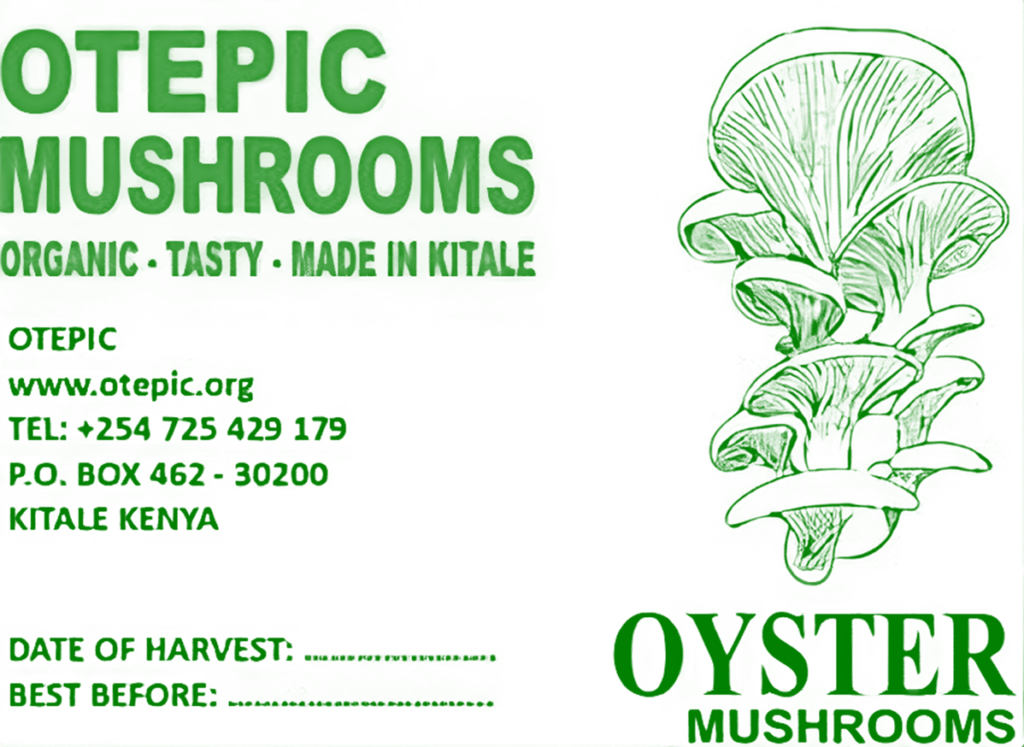The OTEPIC mushroom growing project embodies sustainability and eco-friendliness, making it a model for environmentally responsible agriculture in Kitale Town, Trans Nzoia County, Kenya. By utilizing agricultural waste, such as straw and sawdust, as substrates for mushroom cultivation, the project significantly reduces reliance on synthetic materials and promotes waste recycling. This not only lowers production costs but also minimizes environmental impact by diverting organic waste from landfills. The cultivation process itself requires relatively low water usage compared to traditional crops, contributing to efficient resource management. Additionally, mushrooms are grown in controlled environments, which allows for precise monitoring of conditions, reducing the need for chemical pesticides and fertilizers. This organic approach enhances the health of the local ecosystem while producing high-quality, nutritious food. Moreover, the project can help improve soil health through the application of spent mushroom substrate as a natural fertilizer, enriching the land for future agricultural use. By promoting sustainable farming practices, the OTEPIC project supports local biodiversity and fosters a culture of environmental stewardship within the community, encouraging others to adopt similar eco-friendly initiatives. Ultimately, this commitment to sustainability not only benefits the environment but also strengthens community resilience and food security, ensuring that future generations can enjoy the resources and health benefits that come from responsible agricultural practices.

